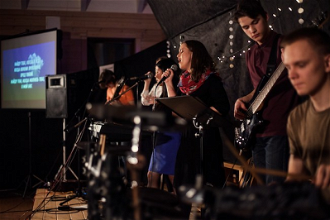Church leads AIDS treatment in South Africa
The Catholic Church in South Africa is now the leading provider of anti-retroviral drugs, second only to the government, the Southern African Catholic Bishops Conference AIDS Office announced yesterday. Of the approximately five million HIV positive people in South Africa, it is estimated 600,000 need anti-retro viral drugs (this includes those with a CD4 count of below 200, and patients in in WHO stage three or four of the disease). In 2004 the National Department of Health began issuing the ARV drugs. However, take up is slow, and logistical complications make it impossible for the government to reach everybody. The Catholic Church already has a network of over 140 service programmes for people with HIV/AIDS in South Africa (hospitals, clinics, hospices, home based care, PMTCT and orphan care). In February 2004 the church began rolling out its programme, to provide HAART at 22 of its facilities - including hospices, clinics and a hospital, as well as a number of home-based care organisations. Each point of service is staffed with a medical doctor, a professional nurse and a project coordinator, all trained in government accredited ARV management courses. Home based care givers are trained by the doctor and nurse. The doctor and nurse draw blood from patients on appointed days, which is sent by courier service to a laboratory in Johannesburg, for CD4, Viral Load, FBC and LFT tests. The site is informed electronically of the results within three days. Patients with CD4 counts below 200 are placed on HAART. The doctor on site sends a prescription electronically to a pharmaceutical distributor in Johannesburg. A months' supply of drugs is delivered, individually packaged per patient, to the site by courier service. Each patient, together with his/her treatment supporter, does three weeks of adherence training before starting treatment. Home-based caregivers monitor the patients for adherence, side effects and nutrition. Further, follow up is done by the doctor during the patient's monthly consultation, and by the nurse. A 24-hour clinical support service by the HIV Clinician's Society of South Africa is available to the sites' doctors and nurses. The Catholic church has the advantage of being present in all communities, and can reach patients who live in areas too remote or marginalized to be reached by the government. Church sites have strong home-based care networks, which ensures very high adherence rates. They have been providing psycho-social support to the communities, for years. Integrating these with HAART ensures holistic care for patients. It is planned to have all 22 points of service operational by February 2005, with 600 patients on HAART at St Mary's Hospital, 300 at Tapologo (Rustenburg), 200 at Sizanani (Bronkhorstspruit) and 100 at each of the remaining 19 points of service (a total of 3 000 patients). This number will be doubled to a total of 6 000 in the second year, and doubled again to 12 000 in the third year.


















